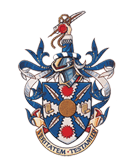General Guidance Notes For Notarial Appointments
General Guidance Notes
These notes are by no means exhaustive. They are preliminary guidelines only, intended to save time and expense both for you and for me. They interrelate with my accompanying notes "Notarial Time & Fees".
1. NOTARIAL DUTY: The international duty of a notary involves a high standard of care, not only towards you as the client but particularly to the transaction itself, as well as towards other parties and governments or officials of other countries. Both you and they are entitled: (1) to assume that a notary will ensure due compliance with the relevant requirements at home and abroad, whether or not specifically requested to do so; and (2) to rely on the notary's register and records. Vigilance is essential at every stage to minimise the risk of errors, omissions, alterations, fraud, forgery, impersonation, money-laundering, etc. It is not a mere rubber stamping exercise.
2. SIGNATURE/SEALING: Your signature/sealing should normally be witnessed by the notary. Do not jump the gun by signing the document in advance of your appointment with the notary.
3. DOCUMENTATION TO BE SENT IN ADVANCE: It can save time, expense and mistakes, if you or your advisers arrange for me to receive, sufficiently before the appointment date/time, the originals or exact photocopies of:
3.1 the documents to be notarised; 3.2 any covering correspondence or instructions from the destination country; 3.3 evidence of your identity (see 5. below).
4. DOCUMENTATION TO BE PREPARED: We many need more than one appointment to finalise the matter, particularly if it is necessary for me to prepare all or some of the documentation.
5. IDENTIFICATION: Please produce by way of formal identification both at the outset and again, most essentially, when you attend to sign the documentation:
5.1 your current passport; 5.2 your current driving licence, security pass, or other formal means of identification; 5.3 any other means of ID particularly specified in the documentation; 5.4 if the above do not incorporate a good photographic likeness, a spare print of a satisfactory recent photograph for retention in my records; 5.5 current evidence of your address e.g. Council/gas/water/telephone/bank statements. Occasionally, it may suffice for you to be personally accompanied and identified to me by someone reliable who is well known both to you and to me.
6. PROOF OF NAMES: You should also produce relevant certificates re your names (especially where there have been name changes or variations of the spelling or the sequence of your names) e.g. certificates of birth, baptism, marriage, divorce, examinations, qualifications and any deed poll or statutory declaration made on change of name.
7. IMPERSONATION/FALSIFICATION: Notaries need to guard against the increasing trend of (1) impersonation; (2) falsification of documents/certificates/qualifications/photographs/signatures; (3) Appearers acting (innocently or otherwise) without due authority, etc.
8. NOTARIAL INDEPENDENCE: This is paramount, in the interests of all concerned. The notary's duty extends to: (1) you as the client; (2) any other party; (3) each intended recipient; (4) all to whom the notarised documentation may come; as well as (5) an overriding duty to the transaction itself.
9. CHAIN OF EVIDENCE: Notarisation is part of the international law or chain of evidence and must be scrupulously undertaken and reliable both in your own interests and the recipient's.
10. EXAMINING THE EVIDENCE: Careful examination by the notary is required to check whether the evidence produced is original, genuine, valid, complete, accurate, and unaltered. This extends to: (1) the document(s)/certificate(s) to be notarised; and (2) the personal I.D. evidence of each Appearer.
11. INCOMPLETE/INEFFECTIVE DOCUMENTS: The notary has to check that each document to be notarised is fully and duly completed. Unfortunately, many documents produced as ready for signature are inadvertently defective, incomplete or inadequate. This occurs even when they have been prepared by professional advisers or agents, who are possibly in too much haste or (not surprisingly) not quite au fait with current notarial practice, procedure and developments.
12. WRITTEN TRANSLATIONS: (1) In relevant cases, official translations may be required before and/or after execution of the documentation. (2) In most cases we can carry out the translation for you.
13. ORAL INTERPRETER: Similarly, arrangements may have to be made for a competent professional interpreter to be available at interviews.
14. SEPARATE ENTITIES: In the case of an entity such as a company, partnership, society, club, etc., notarial requirements should preferably be discussed across the desk with me personally at a preliminary meeting;
14.1 Verification is required as to the current authority for the organisation's representative(s) to sign/seal on its behalf, including proof of: (a) its original formation; (b) its current continuing existence; (c) its present powers and regulations for undertaking this type of transaction; (d) its actual authorisation of this specific transaction; (e) which office holders are authorised to sign, etc; (f) proof of the valid appointment of the present holders of such office(s), etc. 14.2 See also my separate sheet "CORPORATE CLIENT REQUIREMENTS". 14.3 Sometimes notarial attendance may be required at a meeting of a Company, etc. Such meetings may be arranged either at my address or at the client's office, or elsewhere as the case may be, depending on circumstances.
15. RESPONSIBILITY: Subject to the foregoing general guidelines, my responsibility is limited to the notarial formalities and appropriate incidentals, unless specifically instructed to draft or advise on the documentation, with adequate time/details.
[These notes are based very largely on ones kindly made available by T.E.N. Kemp Esq, Notary Public at Chelmsford]

